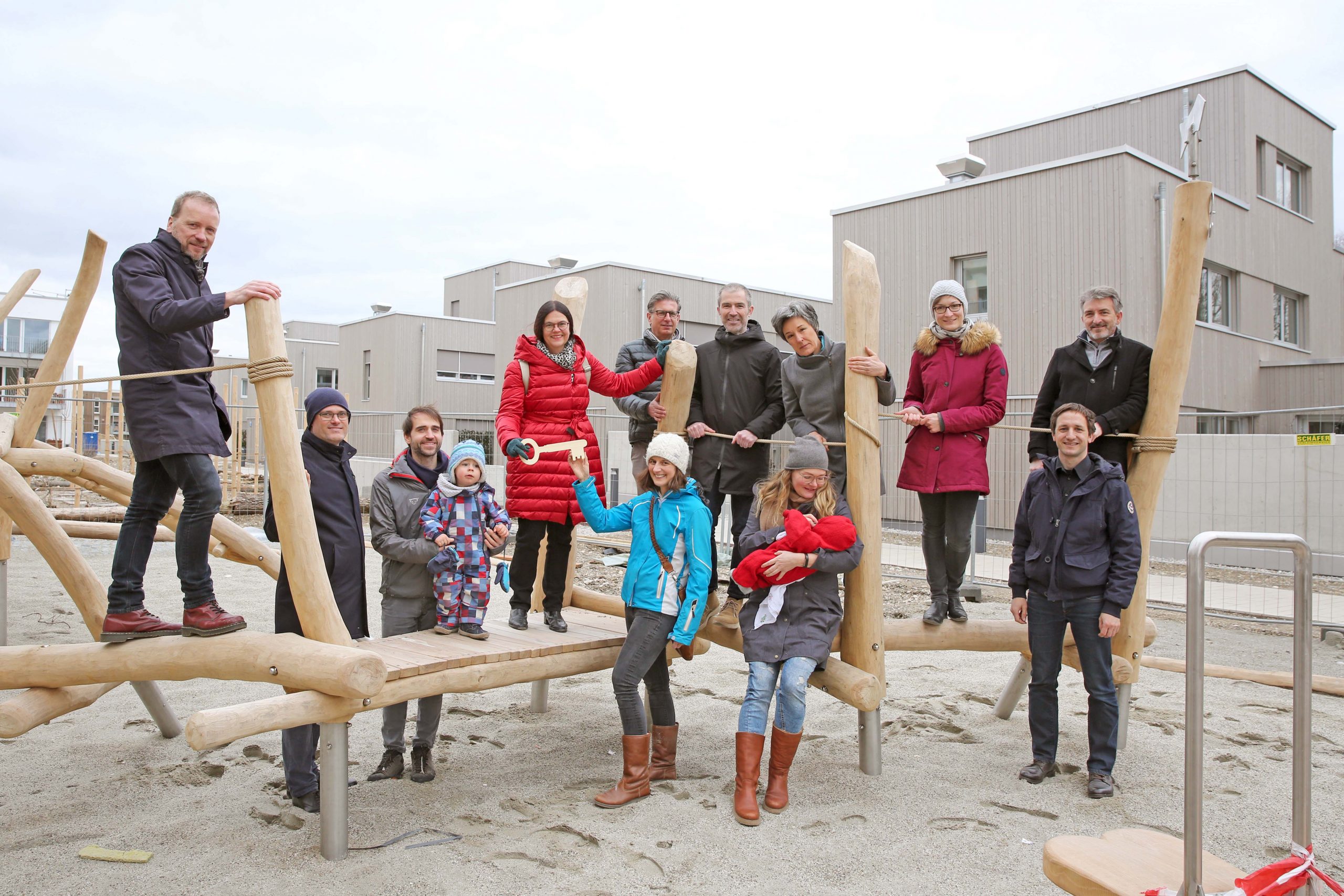Since 1 January 2020, all new buildings and general renovations of the BIG Group have been subject to the Group-wide mandatory minimum sustainable standard.
Vienna (OTS) – The BIG minimum standard goes beyond the legal requirements and ensures that all projects of BIG and its subsidiary ARE achieve the klimaaktiv SILVER standard in any case.
The sustainable minimum standard of the Bundesimmobiliengesellschaft (BIG) is a catalogue of criteria that must already be taken into account in the planning process of buildings. This makes the implementation of 43 measures of the BIG Holistic Building Program (HBP)* and the achievement of at least 750 klimaaktiv points mandatory for all new construction and general refurbishment projects for which a plan invention procedure will be carried out from 2020.
By implementing the minimum standard, CO2 emission levels will be significantly reduced, climate-damaging building materials will be avoided and the phase-out of fossil fuels will be accelerated.
„The sustainable development of real estate is rapidly gaining in importance both nationally and internationally. As a federal real estate company, we see it as our responsibility to set special standards in this area. The implementation of the sustainable minimum standard is a significant milestone on the way to improved resource and energy efficiency", says BIG Managing Director Hans-Peter Weiss.
Other points covered by the minimum sustainable standard are an overall ecological assessment of the buildings (according to OI3) and a mandatory life cycle cost analysis. The inclusion of future follow-up costs allows a long-term economic consideration of the sustainability measures.
Austria-wide photovoltaics initiative
In order to achieve the phase-out of fossil fuels and to be almost emission-free by 2025, BIG is also launching the Austria-wide photovoltaic initiative this year. PV systems will be installed on around 20 hectares of BIG and ARE rooftops by 2023. In this way, the efficient use of solar power will significantly increase the share of renewable energy.
For more information on the sustainable minimum standard and the HBP, please visit our website: https://nachhaltigkeit.big.at/node/16
*Holistic Building Program (HBP)
With the Holistic Building Program (HBP), BIG, together with e7 and Pulswerk GmbH, has developed the most comprehensive digital building configurator in Austria. It accompanies users through all phases of sustainable building projects - from planning to construction to operation - and thus becomes an individual online checklist for all relevant topics. In total, the HBP guides users through 7 thematic areas with a total of 73 criteria that cover essential aspects of holistic construction and thus serve as a clear project guide. The focus is on economic and resource-saving factors as well as ecological and socio-cultural factors. The real-time display of the project data entered in the online catalogue also contributes to the high user-friendliness of the HBP. Each entry of individual measures is immediately converted into points. The maximum total number of points that can be achieved per project is 1,000.
About the BIG
With 2,060 properties, the BIG Group is one of the largest real estate owners in Austria. The portfolio consists of around 7.1 million square metres of lettable space with an enterprise value (fair value) of around EUR 12.0 billion. It is divided into the corporate divisions of schools, universities and special real estate. Office and residential properties are bundled in the subsidiary ARE Austrian Real Estate GmbH. The ARE portfolio comprises 558 properties with around 1.7 million square metres of lettable space. While BIG focuses primarily on public institutions, ARE's offering is also intended to increasingly address non-public tenants. As a developer, the BIG Group represents an important economic factor in Austria. Economic efficiency and architectural quality go hand in hand, as is constantly demonstrated. Every project aims to meet the needs of its future users in terms of ecological, economic and socio-cultural sustainability. The BIG Group has won several awards for its architectural commitment and has received eleven building owner awards to date.
BIG in figures
(Group Report 2018/BIG Group in accordance with IFRS)
- Real estate 2,060
- Lettable area 7.1 million m²
- Employees Ø 923
- Balance sheet total EUR 12.95 billion
- Turnover EUR 1,074.6 million.
- Project investments*) EUR 515.8m.
*) New construction/general renovations; incl. Vienna University of Economics and Business Administration, without project companies + maintenance
Link
www.big.at
Source: PM from 10.2.2020
Keywords:
Stock, Climate protection, Sustainable management, News Blog Europe (without DE), News Blog Austria, Resource efficiency, Tools, Housing



